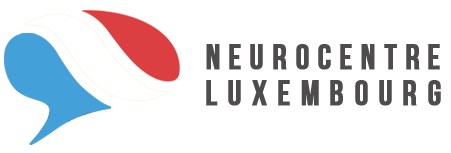Neurological support for children in Luxembourg
Epilepsy
Epilepsy occurs at all ages, but in more than 60% of cases, the onset occurs in the paediatric age group. In children and adolescents, epilepsy is the most common neurological disease. As in adults, a distinction is made between partial (also called focal) and generalised forms. Seizures in children are often different from those in adults because they occur in an immature, developing brain.
Any congenital brain lesion, secondary to prenatal pathology or malformation, can cause irritation of the cerebral cortex which manifests itself with seizures. It should be noted that one third of childhood epilepsy is due to a genetic predisposition, i.e. in the absence of an identifiable brain lesion.
Sleep Disorders
Sleep disorders in childhood are probably one of the main causes of anxiety in parents and therefore one of the most frequent reasons for requesting a paediatric visit. The average pace of a family today is very tight, sometimes even frenetic. Add to this the increase in artificial light, the ever earlier use of electronic devices and poor nutrition, and the result is a mismatch between what should be the child's natural sleep-wake rhythm and social and family needs. Compared to a hundred years ago, children in the Western world sleep on average 2 hours less.
The most common sleep disorders are:
- insomnia (20-30%)
- Parasomnias, such as night wakings or confusion (25%)
- circadian rhythm disorders (7%)
- sleep-disordered breathing (2-3%)
- sleep-related movement disorders (1-2%)
- hypersomnia (0.01-0.20%)
Attention deficit disorder
Attention Deficit Hyperactivity Disorder (ADHD) is one of the most common neurobehavioural disorders in early childhood. There are two main classes of symptoms: inattention and a range of behaviours that indicate hyperactivity and impulsivity.
Children have obvious difficulty in paying attention and maintaining concentration or working on the same task for a sufficiently long time. Following instructions is difficult, children are often disorganised and careless in carrying out their activities, very easily distracted by peers or occasional noise. They move from one activity to another without finishing any of them, they constantly look around, especially when doing their homework, but also when watching their favourite TV programme. This happens especially when these activities are boring and repetitive.
Hyperactive/impulsive children play loudly, talk excessively with poor control of voice intensity, interrupt people who are conversing or carrying out activities, without waiting for the right moment to intervene; parents and teachers describe them as always on the move and on the go, unable to wait for a deadline or their turn. They also appear to be insufficiently task-oriented and find it difficult to plan the execution of the activities assigned to them.
The hyperactivity and impulsivity appear to be due to a difficulty in inhibiting inappropriate behaviour.
Do you have any questions? Need a consultation?
The firm and its team are at your disposal
